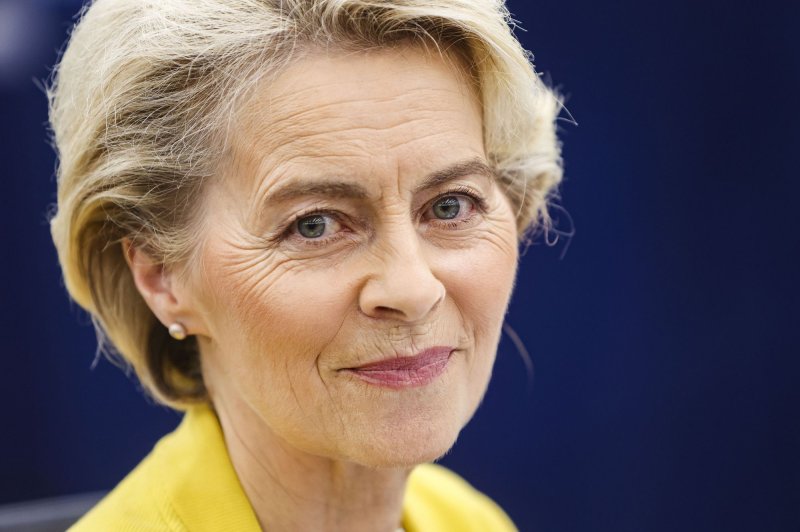EU finds balance on how to tackle its energy crisis
Oct 21 (UPI) — After a series of stumbling blocks over internal disagreements, the European Union chief said on Friday there had been a final deal to find a “balanced” approach to imposing a cap on the price of natural gas.
Most major economies are facing inflationary headwinds, not least due to the war in Ukraine. With Russia leading the world in production of everything from crude oil to natural gas to grains, the backlash to February’s invasion of Ukraine has led to dramatic price hikes for these near-necessities.
Europe in particular is struggling with economic and supply-side challenges as it was heavily dependent on Russia for its imported natural resources prior to the war. For Germany, Europe’s largest economy, these challenges have led to the highest rise in inflation in 70 years.
On Friday, European Commission President Ursula von der Leyen said leaders discussed ways to limit the impact of high natural gas prices on consumers during a European Council meeting.
A price cap would be difficult to coordinate between the different EU members. Von der Leyen added there are additional concerns that a de facto subsidy would do little to meet demand at the consumer level.
“Again, we will work with Member States and the Council formation to find a balanced and common approach to these issues,” she said.
The issue of bloc-wide coordination is a breakthrough for European negotiators working to limit the economic fallout from the war. Germany in particular had resisted the price cap for natural gas, although Chancellor Olaf Schulz had apparently relented during talks this week.
“There’s a lot to do to make this concrete, but we need to find a concrete way to limit these[spikes in commodity prices],” Scholz said, according to Bloomberg news agency.
That doesn’t mean a price cap is imminent, however. The Dutch government said it wanted to see more details on the ins and outs of the deal, while the EU President herself suggested that what is on the table so far only represents a “solid roadmap”.
Talks with the energy ministers of the individual member states are scheduled for Tuesday.
Individual member states have already imposed their own relief measures. German lawmakers this week backed a $195 billion subsidy to help pay for energy bills. French President Emmanuel Macron announced last month that his country would join Germany in backing a European Union windfall tax on energy companies’ “inflated” profits in order to keep soaring gas, coal and oil prices for consumers to contain
 European Commission President Ursula von der Leyen said member states had agreed on a roadmap to deal with the bloc’s energy crisis. European Union/EP/UPI Photo | license photo
European Commission President Ursula von der Leyen said member states had agreed on a roadmap to deal with the bloc’s energy crisis. European Union/EP/UPI Photo | license photo